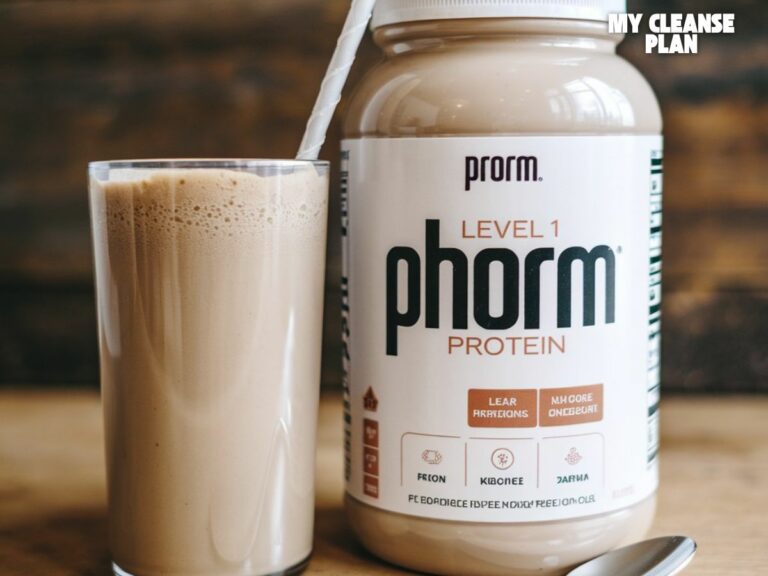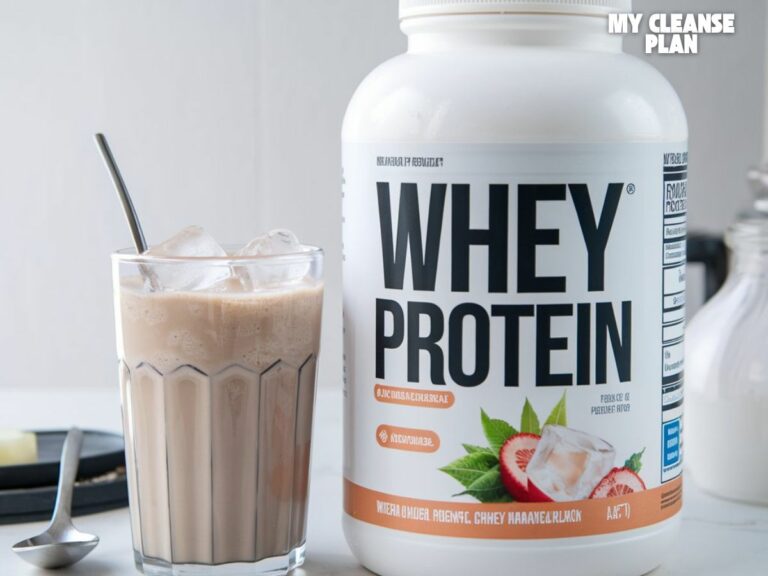Does 1st Phorm Level 1 Expire?
When investing in high-quality supplements like 1st Phorm Level-1 protein powder, ensuring you get the most out of your purchase is essential.
One critical aspect to consider is whether or not the protein powder expires and how this can affect its safety and effectiveness.
1st Phorm Level-1, do indeed have an expiration date. Like all consumable products, the ingredients in protein powder can degrade over time, impacting both the quality and safety of the product.
This article will guide you through everything you need to know about the shelf life of 1st Phorm Level-1, helping you to enjoy its benefits without compromise.

Key Takeaways
Expert Guide
The Shelf Life of 1st Phorm Level-1
1st Phorm Level-1 protein powder typically has a shelf life of about 18 to 24 months from the date of manufacture, assuming it is stored under optimal conditions.
N.B: The exact shelf life can vary based on factors like packaging, storage, and exposure to environmental elements such as heat and moisture.
It’s important to check the packaging for the “Best By” or “Expiration Date” to know the recommended timeframe for consumption.
Factors Affecting the Expiration of Protein Powder
The expiration and overall quality of protein powder can be influenced by various factors. Like:
1. Storage Conditions
- Impact of Temperature Fluctuations:
Studies show that protein powder stored at temperatures above 77°F (25°C) can degrade up to 20% faster than powder stored at cooler, stable temperatures. Keeping protein powder in a cool, dry place can extend its shelf life by several months.
- Humidity Control:
A study indicated that protein powders stored in high-humidity environments (above 65% relative humidity) are 40% more likely to develop clumping and spoilage.
Consistently storing protein powder in a pantry with less than 50% humidity can prevent this deterioration.
2. Exposure to Moisture
- Moisture-Related Clumping:
Research suggests that exposure to moisture increases the likelihood of clumping by 60%.
Clumping not only affects texture but also indicates the possibility of mold growth, reducing both the shelf life and safety of the powder.

- Mold Growth:
According to food safety data, protein powders exposed to moisture for extended periods are up to 70% more likely to develop mold, making the product unsafe for consumption.
3. Heat and Light Exposure
- Nutrient Degradation from Heat:
Protein powders exposed to heat levels exceeding 86°F (30°C) can lose up to 30% of their nutrient content, particularly amino acids and vitamins. This degradation can occur within a few weeks of improper storage.
- Impact of Light:
Light exposure, especially UV light, can cause up to a 25% reduction in the potency of certain vitamins (like Vitamin D) and can accelerate the breakdown of the protein itself by up to 15% within just a few days of exposure.
4. Packaging Integrity
- Air Exposure and Oxidation:
Studies show that when protein powder is exposed to air due to damaged packaging, oxidation can occur, leading to a 50% faster degradation of essential nutrients like fats and proteins.
- Shelf Life Reduction Due to Packaging Damage:
If the packaging is compromised, the shelf life of protein powder can be reduced by up to 30%, as it becomes more susceptible to environmental factors such as moisture, air, and contaminants.
Does 1st Phorm Level 1 Expire? Signs That Your Protein Powder Has Expired
Recognizing the signs that your 1st Phorm Level-1 protein powder has expired is crucial for ensuring you consume a product that is both safe and effective.
Here are key indicators to watch out for:
1. Changes in Smell
- Normal Aroma:
Fresh protein powder usually has a mild, neutral, or slightly sweet smell, depending on the flavor.
- Off Odors:
If the powder develops a sour, rancid, or otherwise unpleasant odor, it’s a strong indication that the ingredients have started to degrade. This is particularly common if the powder contains fats, which can turn rancid over time.

2. Alterations in Taste
- Expected Taste:
Fresh protein powder should have a smooth taste that matches its flavor, like chocolate or vanilla.
- Unusual Flavors:
A bitter, sour, or off taste suggests that the powder is no longer fresh. This can happen due to the breakdown of proteins, fats, or sweeteners, which not only affects taste but may also make the powder unsafe to consume.
3. Clumping or Texture Changes
- Minimal Clumping:
While minor clumping can occur naturally, it should be easy to break apart.
- Excessive or Hard Clumps:
Significant clumping is a red flag, often caused by moisture exposure, which can lead to spoilage or mold growth. A gritty or uneven texture can also indicate chemical changes that compromise the powder’s quality.
4. Discoloration or Off Colors
- Uniform Color:
Fresh protein powder typically has a consistent color, like light brown for chocolate or cream for vanilla.
- Color Changes:
Discoloration, such as dark spots, yellowing, or an overall change in hue, may signal that the powder has been exposed to air, moisture, or light, leading to potential spoilage.
Such changes could also suggest the presence of mold or bacteria, making the product unsafe to use.
How to Properly Store 1st Phorm Level-1 Protein Powder
Proper storage is essential for maintaining the quality and effectiveness of your 1st Phorm Level-1 protein powder.
Here’s how to store it correctly:
Ideal Storage Conditions
- Store your protein powder in a cool, dry place, such as a pantry or cupboard. The ideal temperature range is between 60°F and 70°F (15°C to 21°C).
- Keep the powder away from direct sunlight, as UV rays can degrade the ingredients, particularly vitamins and proteins.
- Ensure the storage area has a consistent temperature, avoiding areas prone to temperature fluctuations, such as near ovens or windows.

Do’s and Don’ts of Protein Powder Storage
Do:
- Always close the lid tightly after each use to prevent air and moisture from entering the container.
- If the original packaging is damaged or transparent, transfer the powder to an airtight, opaque container to protect it from light and air exposure.
- Consider adding a desiccant pack to the container to absorb any excess moisture and further extend the shelf life.
Don’t:
- Avoid storing protein powder near heat sources like stoves, microwaves, or radiators, as heat can accelerate the degradation of the powder.
- Refrain from storing protein powder in humid areas such as bathrooms or near sinks, where moisture levels are high and can lead to clumping and spoilage.
- Never leave the container open for extended periods, as this increases the risk of contamination and exposure to air and moisture.
Tips for Extending Shelf Life
Some pro tips to extending the shelf life of 1st phorm level 1
Check Expiration Dates
Always check the expiration date before purchasing and ensure you consume the powder within this timeframe.
First In, First Out
Use the oldest stock first to ensure that you consume the powder before it reaches its expiration date.
Avoid Transferring Too Often
Minimize the frequency of transferring the powder between containers, as this increases the risk of contamination and exposure to air.
Store in Smaller Portions
If you buy in bulk, consider dividing the powder into smaller, airtight containers, so you only open what you need and reduce exposure for the rest of the product.






